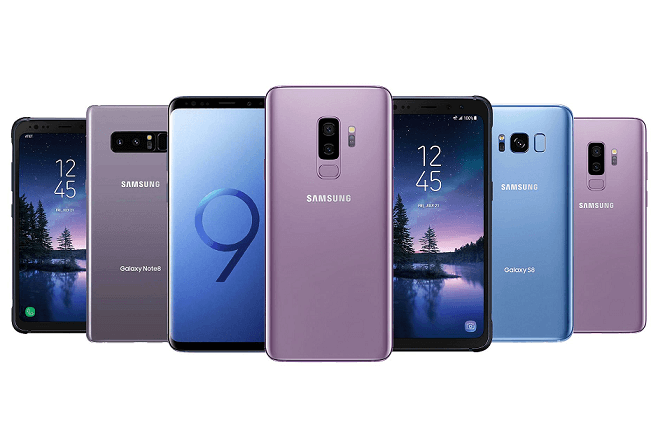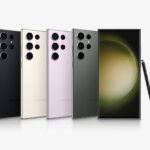Have you ever wondered why Samsung smartphone prices vary in Nigeria? It’s such an interesting topic because if you walk into any store or browse online, you’ll notice that the prices for the same Samsung smartphone model can differ from one seller to another.
But why is that? Well, in this article, we’ll explore the factors that contribute to the varying prices of Samsung smartphones in Nigeria, giving you a better understanding of the market and what influences the prices.
Factors that Influence the Price of Samsung Phones in Nigeria
1. Importation Costs
First and foremost, one factor that affects the price of Samsung smartphones in Nigeria is the cost of importation.
Nigeria relies heavily on importing electronic devices, including smartphones, which can lead to high import duties and taxes.
These costs are then passed on to the consumer, making the final price higher.
2. Exchange Rate
Additionally, the exchange rate of the Nigerian Naira to other currencies, such as the US Dollar, also plays a role in determining the price.
Fluctuations in the exchange rate can impact the cost of importing smartphones, further affecting the final price.
3. Distribution Chain
Another factor that influences the varying prices of Samsung smartphones in Nigeria is the distribution chain. The presence of multiple intermediaries, such as distributors, wholesalers, and retailers, in the supply chain can contribute to price differences.
Each intermediary adds their own margin to the price, resulting in variations.
4. Store Location
The location of the store can also impact the price. For instance, if a store is located in a high-end area with higher rental costs, they may charge more to cover the expenses. On the other hand, stores in less expensive areas may offer lower prices.
5. Market Competition
Finally, competition among sellers is another important factor to consider. In Nigeria, there are numerous sellers and retailers offering Samsung smartphones, each with its own pricing strategies.
Some sellers may choose to offer discounts or promotions in order to attract customers, while others may have higher prices due to the perceived value of their location or reputation.
As a consumer, it’s important to be aware of these factors and do your research before making a purchase to ensure you are getting the best deal.
So, there you have it. The varying prices of Samsung smartphones in Nigeria can be attributed to factors such as importation costs, exchange rates, distribution chains, and competition.
By understanding these factors, you’ll be better equipped to navigate the smartphone market in Nigeria and find the best deal for yourself.
In our next section, we will delve deeper into each of these factors, giving you a comprehensive guide to understanding the world of Samsung smartphone prices in Nigeria.
Must See: Latest Samsung Smartphone Prices in Nigeria
Why Do Samsung Smartphone Prices Vary In Nigeria?

As a consumer in Nigeria, I have often wondered why Samsung smartphone prices can vary so much.
It can be frustrating to see the same smartphone model being sold at significantly different prices in various retail stores.
After conducting some research and speaking with industry experts, I have discovered several factors that contribute to this price variation.
1. Currency Exchange Rate
One of the major factors that contribute to price variation is the currency exchange rate. Nigeria operates with its own currency, the Naira, which is subject to fluctuations against major international currencies such as the US Dollar, Euro, and British Pound.
Samsung, being a global brand, often sets its smartphone prices in US Dollars or other major currencies.
Therefore, when the value of the Naira changes relative to these currencies, it directly affects the pricing of Samsung smartphones in Nigeria.
These exchange rate fluctuations can have a significant impact on Samsung smartphone prices.
When the Naira is strong against major currencies, it can lead to lower prices for Samsung smartphones as the cost of importing the devices becomes cheaper.
On the other hand, a weaker Naira can result in higher prices as the cost of importing smartphones increases.
The influence of the foreign exchange market on Samsung smartphone prices cannot be underestimated.
Factors such as interest rates, inflation rates, and political stability can all affect the value of the Naira in the foreign exchange market, which in turn impacts the pricing of Samsung smartphones in Nigeria.
2. Import taxes and customs duties
Another key factor contributing to price variation is the import taxes and customs duties imposed by the Nigerian government.
The government sets these taxes and duties as a means of regulating the importation of goods into the country and protecting domestic industries.
As Samsung smartphones are imported goods, they are subject to these taxes and duties.
Government import policies and regulations play a crucial role in determining the tax rates and duties imposed on imported smartphones.
These policies can change over time, resulting in fluctuations in the cost of importing Samsung smartphones into Nigeria.
Therefore, changes in import taxes and customs duties can directly influence the final retail price of Samsung smartphones.
Tariffs and taxes on imported smartphones are another component of the overall import costs.
These charges, which are imposed by the government, are designed to generate revenue and protect local industries.
The higher the tariffs and taxes, the higher the cost of importing Samsung smartphones, ultimately leading to higher retail prices.
Customs clearance procedures also contribute to the variation in Samsung smartphone prices.
Delays or inefficiencies in the clearance process can result in additional costs for importers, which are then passed on to consumers.
These costs include storage charges and administrative fees, which contribute to the final retail price of Samsung smartphones in Nigeria.
3. Distribution costs
Distribution costs are another important factor that can impact Samsung smartphone prices in Nigeria.
These costs include logistics and transportation expenses, warehousing and storage fees, as well as retailer markups and profit margins.
The logistics and transportation expenses incurred in getting Samsung smartphones from the production facilities to retail stores in Nigeria can be significant.
These expenses include shipping costs, customs brokerage fees, and insurance charges. Any increase in these costs can contribute to a higher retail price for Samsung smartphones.
Warehousing and storage fees are also factored into the final retail price of Samsung smartphones.
As smartphones need to be stored and maintained in optimal conditions before reaching the end consumer, these fees can vary based on location and storage requirements.
Higher warehousing and storage fees can result in higher retail prices for Samsung smartphones.
Retailer markups and profit margins play a significant role in price variation as well.
Different retailers may have different pricing strategies and profit goals, resulting in varying markups on Samsung smartphones.
Retailers with higher profit margins may charge higher prices for Samsung smartphones, while those with lower profit margins may offer more competitive pricing.
4. Competition among retailers
Competition among retailers is a key driver of price variation for Samsung smartphones in Nigeria.
Retailers constantly try to attract customers by offering the best possible prices.
This can result in price wars, where retailers compete with each other by reducing their profit margins and offering discounts.
Price wars can lead to significant fluctuations in Samsung smartphone prices in Nigeria.
During these periods, consumers have the opportunity to purchase Samsung smartphones at significantly discounted prices.
However, it is important to note that these price wars are usually temporary and may not be indicative of the actual value of smartphones.
In addition to price wars, exclusive deals and partnerships with Samsung can also impact the pricing of smartphones. Retailers that have exclusive agreements with Samsung may have more control over the pricing of smartphones.
These agreements can sometimes result in higher prices for Samsung smartphones, especially if the retailer is able to offer exclusive features or bundles with the smartphones.
The emergence of online marketplaces has also had an influence on Samsung smartphone prices in Nigeria.
Online platforms provide consumers with access to multiple retailers and price comparisons, making it easier for them to find the best price for a Samsung smartphone.
The increased transparency and competition in online marketplaces have pushed retailers to offer more competitive prices, ultimately benefitting consumers.
5. Consumer demand
Consumer demand is another significant factor contributing to price variation for Samsung smartphones in Nigeria.
The concept of price elasticity of demand plays a crucial role in understanding consumer behavior and its impact on pricing.
Price elasticity of demand measures how sensitive consumers are to changes in price.
In the case of Samsung smartphones, if demand is highly elastic, a small change in price can result in a significant change in demand.
This means that consumers are more likely to switch to a different brand or model if the price of a Samsung smartphone becomes too high.
Factors that influence consumer preference include features, specifications, and brand reputation.
If consumers perceive a Samsung smartphone to have better features or specifications compared to its competitors, they may be willing to pay a higher price for it.
Brand loyalty and perception can also lead to variations in price, as consumers may be more willing to pay a premium for a Samsung smartphone due to their trust and confidence in the brand.
6. Role of supply and demand
The interplay between supply and demand also contributes to the price variation of Samsung smartphones in Nigeria. Supply chain dynamics and market conditions can influence the pricing of smartphones.
The supply chain for Samsung smartphones involves various stages, including manufacturing, distribution, and retailing. Any disruptions or inefficiencies in this supply chain can impact the availability and cost of Samsung smartphones in the market. For example, if there is a shortage of certain components required for manufacturing, it can lead to a decrease in supply and subsequently an increase in prices.
The relationship between pricing and demand is also an important factor to consider. When demand for Samsung smartphones is high, retailers may increase their prices to capitalize on consumer willingness to pay. Conversely, when demand is low, retailers may lower their prices to stimulate sales. Therefore, market conditions and consumer demand fluctuations can directly impact the pricing of Samsung smartphones in Nigeria.
Market equilibrium, where supply and demand are balanced, is an ideal situation for both consumers and Samsung. In this scenario, consumers can purchase Samsung smartphones at fair prices, while Samsung can effectively manage its production and pricing strategies to meet consumer demand.
Read: What Is The Cheapest Samsung Smartphone Currently Available In Nigeria?
Samsung Smartphone Price Implications for Consumers
Price variation in Samsung smartphones can have both positive and negative implications for consumers in Nigeria.
Positive Implications
On the positive side, price variation allows for the availability of affordable options.
When Samsung smartphones are priced lower, it provides consumers with the opportunity to own a high-quality smartphone at a more accessible price point.
This can be especially beneficial for consumers who may have a limited budget but still want to enjoy the features and capabilities of a Samsung smartphone.
Price variation also incentivizes consumers to comparison shop. When there are price differences among retailers, consumers are encouraged to research and compare prices before making a purchase.
This can result in savings for consumers as they can find the best deal for a Samsung smartphone.
Negative Implications
Price variation can also have a negative impact on consumer purchasing power.
When prices are high, consumers may be deterred from purchasing a Samsung smartphone, limiting their access to the latest technology and features.
This can create a divide between those who can afford high-priced smartphones and those who cannot, potentially leading to inequalities in access to technology and digital opportunities.
Frequently Asked Questions
Why are Samsung smartphones more expensive in some stores than others?
exchange rates, distribution chains, store location, and competition among retailers.
How does the exchange rate affect the price of Samsung smartphones in Nigeria?
The exchange rate of the Nigerian Naira to other currencies, such as the US Dollar, impacts the cost of importing Samsung smartphones into Nigeria. Fluctuations in the exchange rate can therefore affect the final price of the smartphones.
Are Samsung smartphones cheaper online or in physical stores in Nigeria?
This can vary greatly depending on a number of factors. It's often a good idea to compare prices from multiple sources before making a purchase.
Why are Samsung smartphones cheaper in some countries compared to Nigeria?
Prices can vary from one country to another due to factors such as taxes, import duties, and the local cost of doing business. It's also important to note that some countries may have different models that could be cheaper due to lower specifications.
Is there a best time to buy a Samsung smartphone in Nigeria?
While there may not be a specific best time, keeping an eye on promotional events, holidays, and the release of new models can sometimes yield better deals.
How can I ensure I'm getting the best price for a Samsung smartphone in Nigeria?
One of the best strategies is to compare prices from multiple sellers, whether online or in physical stores. Additionally, understanding the factors that contribute to price differences can help you make a more informed decision.
Recommendations for Samsung
Given the complex factors contributing to price variation, I have several recommendations for Samsung to consider when addressing the fluctuating prices of their smartphones in Nigeria.
Firstly, Samsung should focus on implementing sustainable pricing strategies.
This involves setting prices that are fair and reasonable for both consumers and the company.
By understanding the factors that influence price variation, Samsung can develop pricing strategies that consider the economic conditions of Nigeria, the exchange rate fluctuations, and the competitive landscape.
Adapting to local market conditions is also crucial for Samsung.
Nigeria is a unique market with its own economic challenges and consumer preferences.
By studying and understanding these conditions, Samsung can tailor its smartphone offerings to meet the specific needs and preferences of Nigerian consumers.
This may involve customizing certain features or specifications to ensure the smartphones are well-suited for the Nigerian market.
Enhancing customer value is another important aspect for Samsung to consider.
By offering additional benefits such as warranty extensions, after-sales services, or exclusive content partnerships, Samsung can differentiate itself from competitors and provide added value to consumers.
This can justify the pricing of Samsung smartphones and create a positive perception among consumers.
Also Read: Where Can I Buy Original Samsung Smartphones In Nigeria?
Wrapping up
In conclusion, understanding the multi-faceted reasons for Samsung smartphone price variation in Nigeria is vital for both consumers and the company itself.
Factors such as currency exchange rate fluctuations, import taxes, and customs duties, distribution costs, competition among retailers, and consumer demand all play a role in shaping the final retail prices of Samsung smartphones.
By taking these factors into consideration and implementing the recommended strategies, Samsung can navigate the price variation landscape in Nigeria and provide consumers with affordable and high-quality smartphones.
See what others are reading:
- Samsung Galaxy S23 prices in Nigeria: Should you buy it?
- Samsung Galaxy Note 10 Plus 5G Specs and Prices

